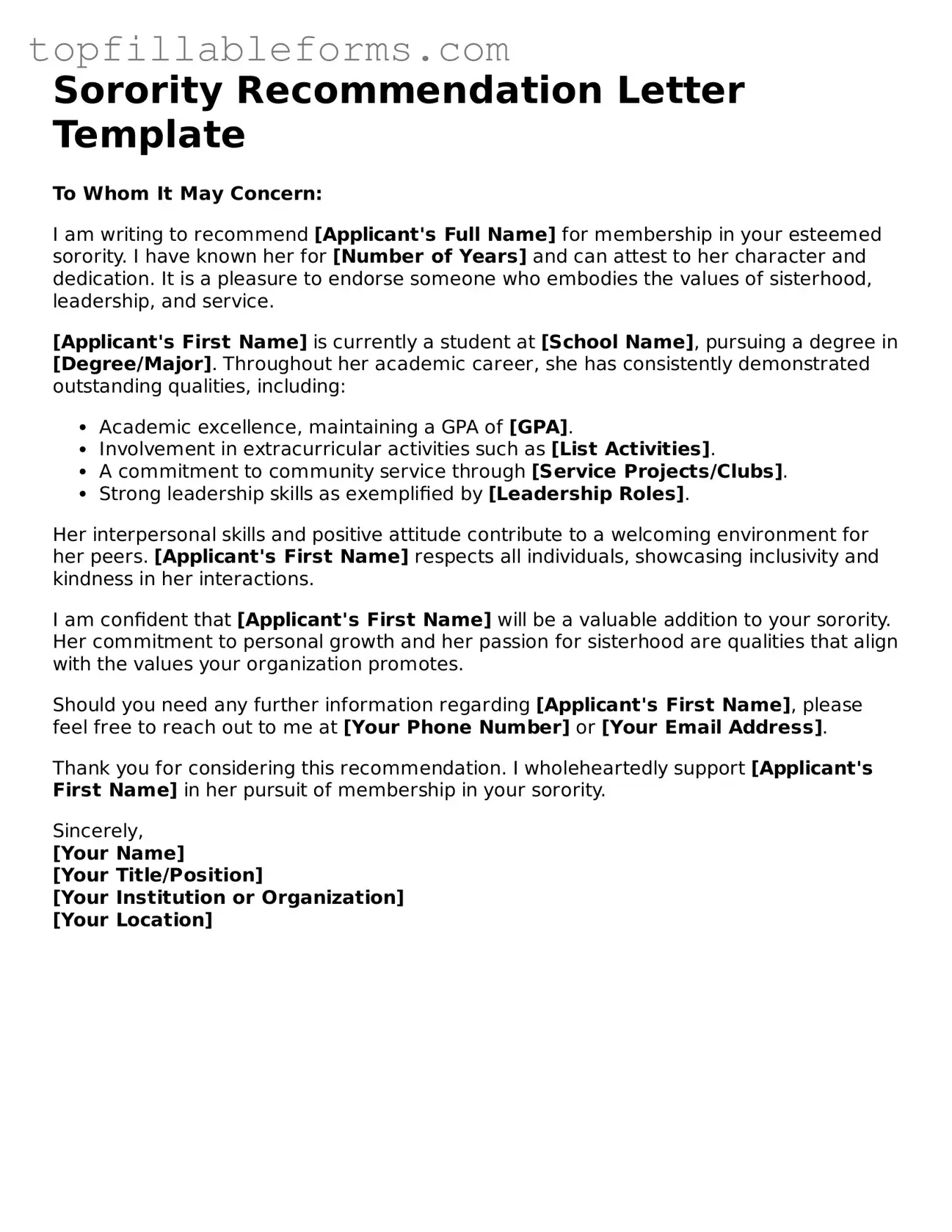Free Sorority Recommendation Letter Form
The Sorority Recommendation Letter form is a document used by sororities to gather insights about potential new members. It serves as a way for current members to recommend candidates based on their character, achievements, and compatibility with the sorority's values. Completing this form is a crucial step in the recruitment process, helping to ensure that the right individuals are considered for membership.
Open Sorority Recommendation Letter Editor Here

Free Sorority Recommendation Letter Form
Open Sorority Recommendation Letter Editor Here
Finish the form now and be done
Finish your Sorority Recommendation Letter online by editing, saving, and downloading fast.
Open Sorority Recommendation Letter Editor Here
or
▼ PDF File
